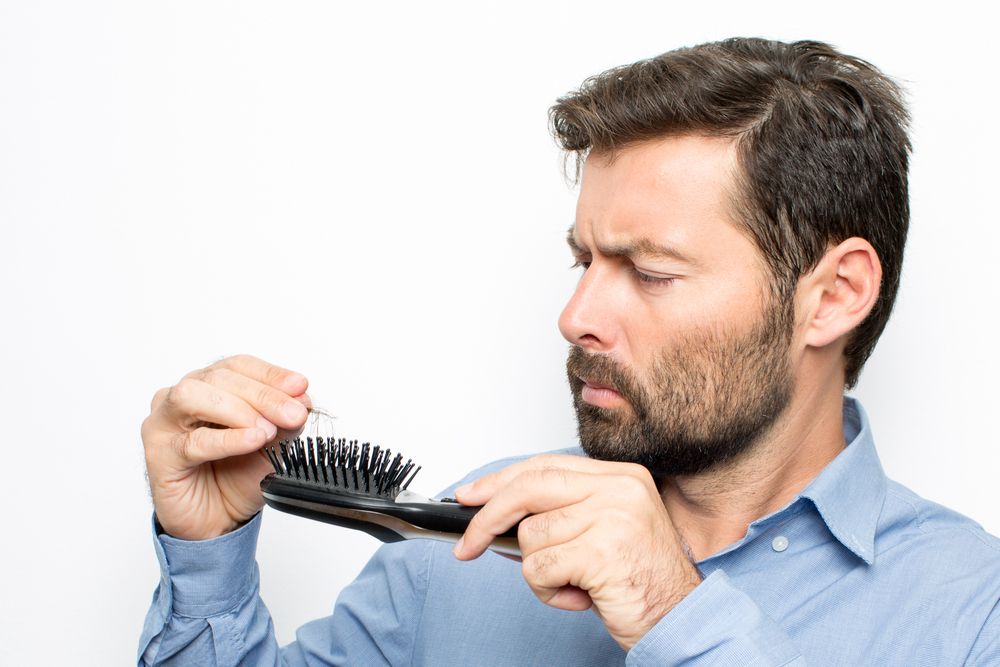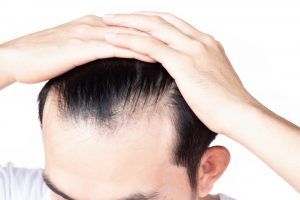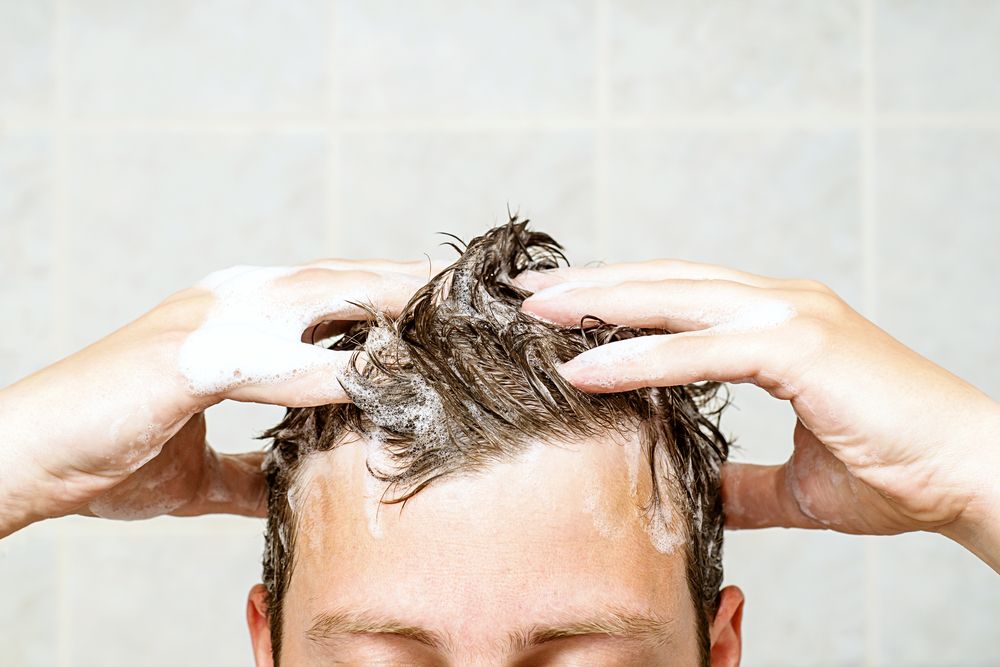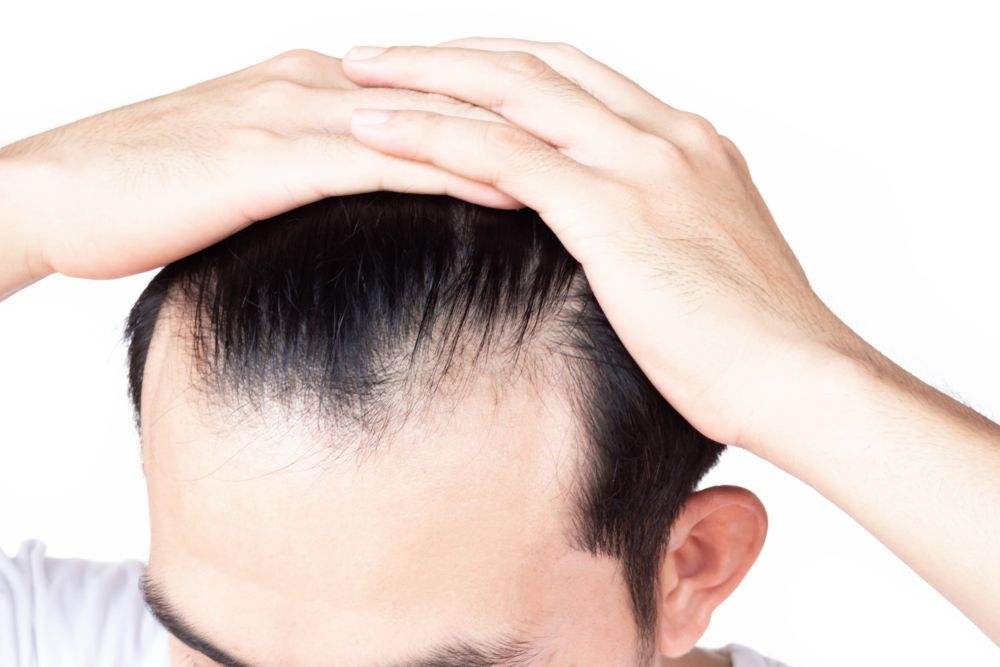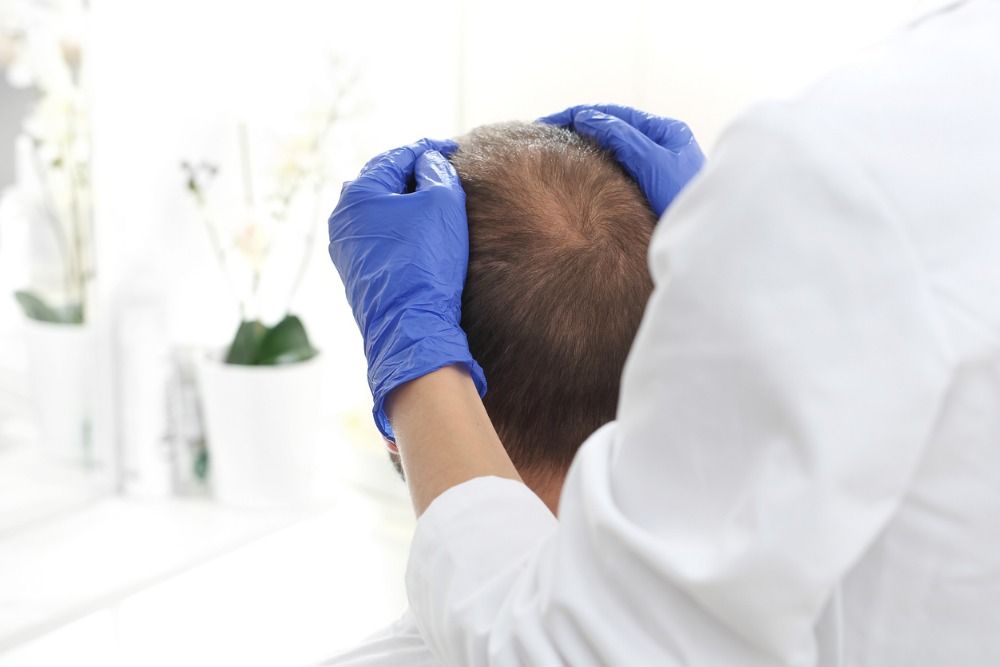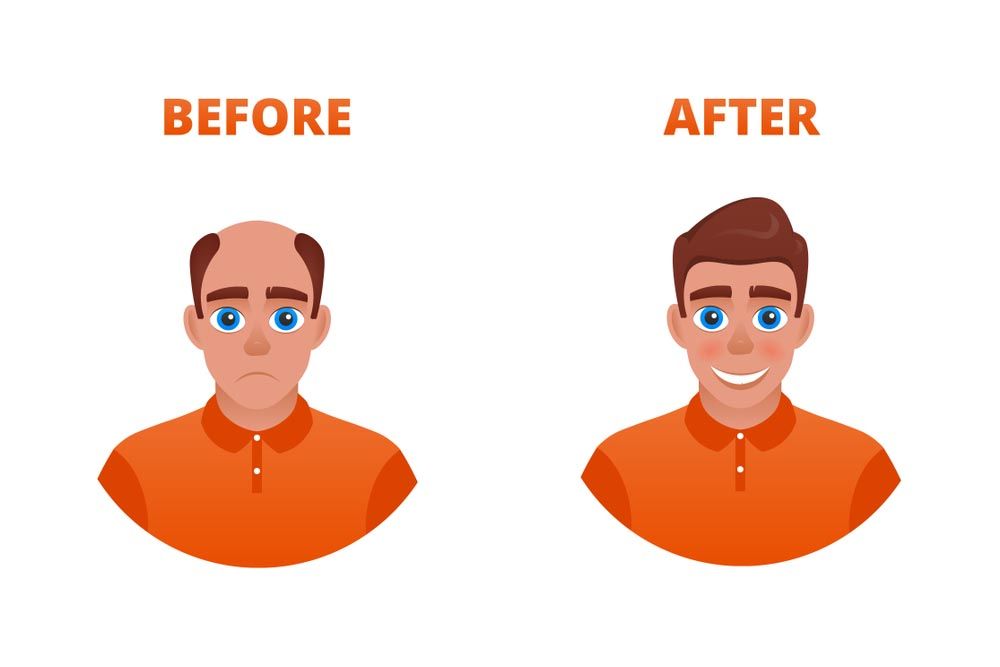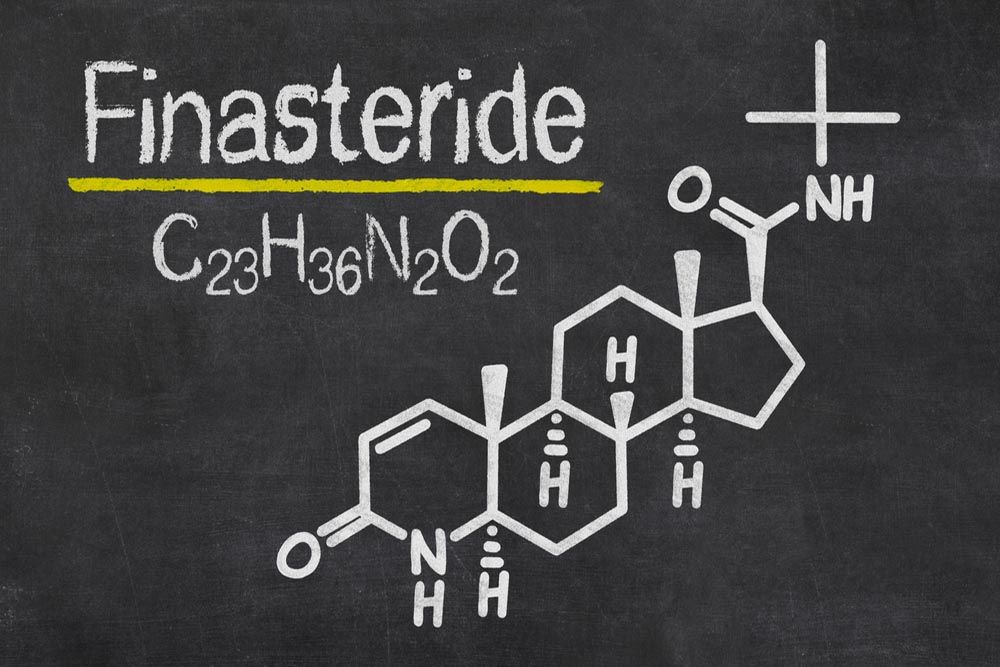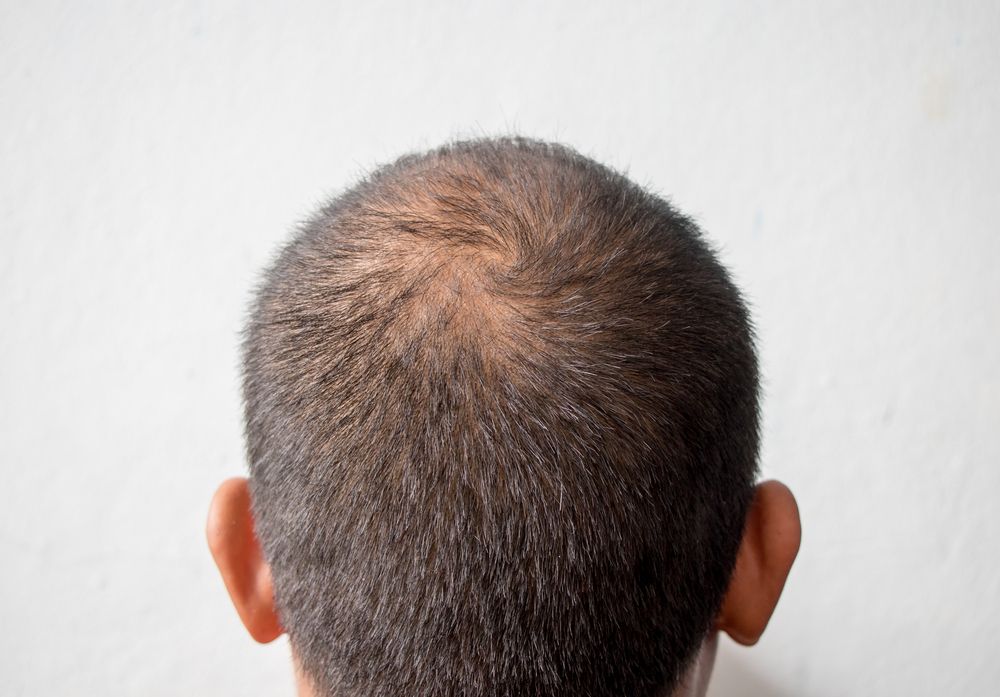Dutasteride is a prescription drug that’s taken as a capsule. It belongs to a group of drugs called 5-alpha-reductase inhibitors (5-ARIs). (Learn More)
Dutasteride is most commonly prescribed to treat an enlarged prostate, but other 5-ARIs have been used to treat hair loss. In studies, dutasteride has shown promise as a hair loss treatment as well. There have been reports of it being used off-label for this purpose. (Learn More)
Dihydrotestosterone (DHT) is a male hormone. When there’s too much DHT in the blood, it can signal the body to not allow hair growth. Dutasteride reduces the production of DHT. (Learn More)
Some studies have shown dutasteride to have potential as a successful hair loss treatment, perhaps more effective than other 5-ARIs. Like other drugs in its class, the drug must be taken continuously to work, and it will not affect hair follicles that are already inactive. (Learn More)
Dutasteride can have side effects, mostly sexual in nature, including erection and ejaculation problems. More rare and serious side effects, like swelling and breathing problems, should be treated with emergency medical care. (Learn More)
There are some serious risks associated with dutasteride use. Pregnant women should never swallow or even touch the drug.
Because of drug interactions, you should tell your doctor about any medications or supplements you take while on dutasteride. The FDA also warns of a possible increased risk of prostate cancer when taking Dutasteride. Some research links its use to long-term sexual dysfunction. (Learn More)
What Is Dutasteride?
Dutasteride is a prescription drug that is categorized as a 5-alpha-reductase inhibitor.
It is only available as an oral capsule. It’s available as both a generic and brand-name drug. It may be obtained in different strengths.
Why Is It Prescribed?
Dutasteride was approved by the Food and Drug Administration (FDA) in 2001, for the treatment of benign prostatic hyperplasia (BPH), also known as an enlarged prostate.
Although dutasteride is currently prescribed to treat BPH and an enlarged prostate, there has been a great deal of interest in use of the drug as a treatment for hair loss. There have been many studies examining dutasteride’s potential as a hair loss treatment, particularly for androgenetic alopecia (AGA), a hair loss condition involving thinning of scalp hair.
Because of this, there has been reported off-label use of dutasteride for male and female hair loss and pattern baldness.
Dutasteride is also used off-label in transgender hormone therapy, particularly in those who experience hair loss or cannot tolerate other medications.
Dutasteride has been approved as a hair loss treatment in other countries, including Japan and Korea. Other 5-alpha-reductase inhibitor drugs, including finasteride, have been approved by the FDA for hair loss.
How Could Dutasteride Treat Hair Loss?
As a 5-alpha-reductase inhibitor, dutasteride belongs in a group of drugs that halt the production of the male hormone dihydrotestosterone (DHT).
These drugs reduce DHT production by inhibiting the enzyme (5-alpha reductase) that converts testosterone to DHT.
DHT is a hormone in the blood that plays a role in hair development. If too much DHT is formed, it may cause hair loss and baldness, particularly male pattern baldness.
By stopping or reducing the production of DHT, dutasteride may prevent hair loss and allow for new growth.
Is It Effective in Treating Hair Loss?
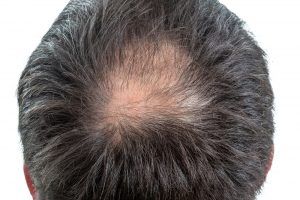
Dutasteride is prescribed mainly as a treatment for prostate problems, and research is ongoing as to whether dutasteride is the best choice for treating hair loss.
Recent research indicates that it has serious potential as a hair loss treatment. It may be more effective than other 5-alpha-reductase inhibitors that are already on the market.
A 2017 research analysis published in Current Clinical Pharmacology concluded that dutasteride may be better than finasteride, with similar negative side effects. The report said it could “become a treatment of choice” for androgenetic alopecia (AGA) in the future.
While finasteride inhibits one type of 5-alpha-reductase inhibitor (type II), dutasteride inhibits both types of 5-alpha reductase inhibitors (type I and type II), which lowers DHT even more. This is one reason many see a potential for dutasteride to be used as an effective drug for hair loss.
There are some limitations in treating hair loss with dutasteride as well. It only works for as long as it is taken, so symptoms of hair loss will return if the medication is stopped.
While dutasteride can slow or prevent more hair loss, it likely won’t have an effect on hair follicles that have already become inactive, although it may stimulate regrowth in follicles that are active but dormant. This is why it’s beneficial for men to use it at the earlier stages of hair loss.
Side Effects
Dutasteride may cause side effects. If they persist or are severe, you should immediately contact your doctor. These side effects include:
- Being unable to obtain or maintain an erection.
- Decrease in sexual desire and libido.
- Ejaculation problems.
Dutasteride can have serious side effects. If you experience any of the following symptoms, seek emergency medical help:
- Swelling of the face, throat, or tongue
- Trouble swallowing
- Breathing difficulty
- Peeling skin
- Breast changes, including lumps, increase in size, pain, and discharge from nipples
Dangers & Serious Risks of Dutasteride
Dutasteride may interact with other medications or supplements. Tell your doctor about any medications, herbs, vitamins, or supplements you are taking.
Other risks and dangers possible when taking dutasteride include:
- Allergic reactions. Symptoms of an allergic reaction to dutasteride include rash, swelling, breathing problems, and skin reactions. Seek emergency medical attention if any severe allergic reactions are suspected.
- Dangers for pregnant women. Dutasteride should never be taken or handled by pregnant women. If a pregnant woman swallows or touches dutasteride, it may result in hormonal birth defects.
- Increased risk of prostate cancer. In 2011, the Food and Drug Administration released a new warning about a possible increased risk of developing high-grade prostate cancer when taking 5-alpha-reductase inhibitors.
- Sexual dysfunction. A 2017 study from Northwestern University found that taking dutasteride (and finasteride) may result in long-term sexual dysfunction problems.
References
Dutasteride, Oral Capsule. (August 22, 2018). Healthline.
Should Women Take Avodart to Treat Hair Loss? (September 5, 2013). Consumer Reports.
Overview of Feminizing Hormone Therapy. (June 2016). University of California, San Francisco.
Safety and Tolerability of the Dual 5-Alpha Reductase Inhibitor Dutasteride in the Treatment of Androgenetic Alopecia. (August 28, 2016). Annals of Dermatology.
What Is Avodart (Dutasteride)? (June 22, 2015). Everyday Health.
Superiority of Dutasteride Over Finasteride in Hair Regrowth and Reversal of Miniaturization in Men with Androgenetic Alopecia: A Randomized Controlled Open-Label, Evaluator-Blinded Study. (February 2017). Indian Journal of Dermatology, Venereology, and Leprology.
Dutasteride in Androgenetic Alopecia: An Update. (2017). Current Clinical Pharmacology.
Baldness: How Close Are We to a Cure? (June 5, 2017). Medical News Today.
Dutasteride. (February 15, 2016). MedlinePlus.
FDA Drug Safety Communication: 5-alpha Reductase Inhibitors (5-ARIs) May Increase the Risk of a More Serious Form of Prostate Cancer. (June 9, 2011). Food and Drug Administration (FDA).
Hair Loss and Prostate Drugs Linked to Persistent Erectile Dysfunction in Men. (March 9, 2017). Northwestern University.

